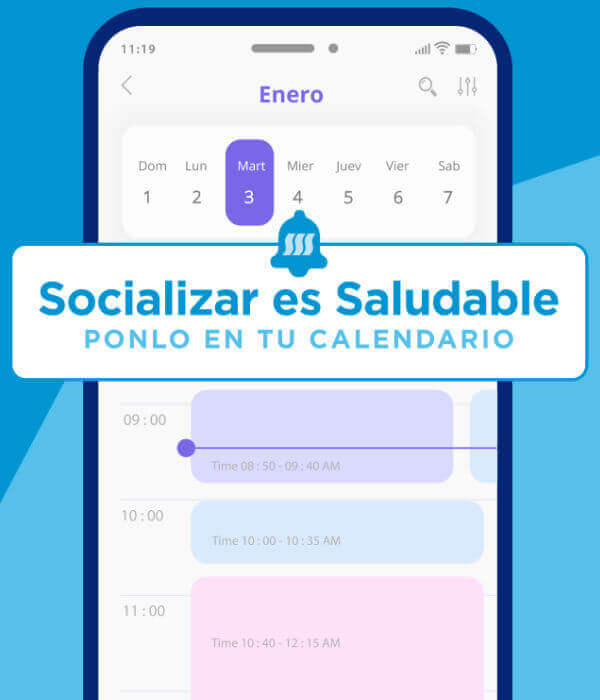Connecting with family, friends, and acquaintances is one of the best and most comforting sensations. It is also a strategy to counteract social isolation and loneliness while helping you improve your mental and physical health.
To determine whether you should improve your social practices, start by evaluating the following risk factors: you live alone and far away from friends, family, or a support network; your home is distant or unsafe; you lack transportation; you are exposed to domestic or community violence; you suffer from psychological and cognitive challenges, mobility problems, or sensory impairment. These circumstances can contribute to social isolation and the development of feelings of loneliness.
Then, design strategies to offset them and improve your quality of life. Identify your preferences and the activities you can engage in and enjoy.
We recommend:
- Move: Exercise reduces stress, improves your mood, and boosts your energy levels.
- Connect: Schedule time each day to stay in touch with family members, friends, and neighbors, be it in person, through the phone, email, video chat, or social media.
- Enjoy: Pick up an old hobby.
- Learn: Join a group class to learn something new.
- Participate: Take part in activities held at malls, town centers, or your building or community.
- Help: Become a volunteer to help others in your community.
- Adopt: Adopt a pet if you can and are able to take care of it. Animals can be a source of comfort and reduce stress and blood pressure.
Some organizations can provide tools to help. To learn more about these organizations and get more information, visit: https://management.grupotriples.com/socializaressaludable/en/





